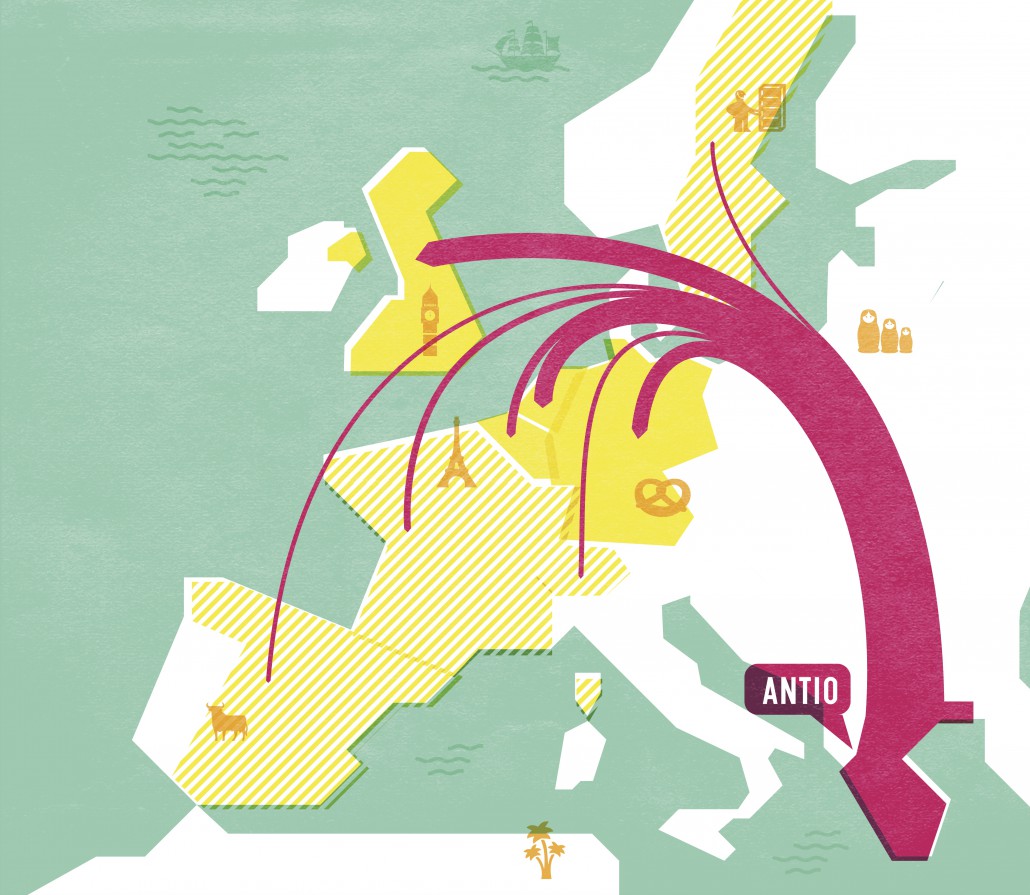Share this story
TIME TO READ: ABOUT 5 MINUTES
Giolika started to think about leaving Greece in 2011, when she found herself among the unemployed. Giolika filled out paperwork in the Greek Employment Organization – without the prospect of any work in the near future. By then she had finished her degree at the School of Primary Education at Aristotle University.
Giolika was not only unemployed, she also wanted to continue her studies in a field that is not developed in Greece. After looking around Europe, she was accepted to Berlin’s University of the Arts. Now Giolika studies there on a scholarship, completing the last year of her master’s in theatre pedagogy.
Giolika says that among the art students, she was lucky to not experience things that she heard other people describe, no demeaning treatment, no slurs or slander. “My fellow students had no idea of what really went on in Greece. So in my everyday life I never felt inferior because of the Greek crisis and poverty,” Giolika says. Still she remembers incidents that made her feel uncomfortable for her origin, for example when she searched for a room to rent in Berlin. “Once, I went to a house and one of the questions they asked me was whether I would have the money to pay my rent next month. I believed it was a joke.” Another example: “Being in the metro and talking in Greek while someone that looks like a neo-Nazi is staring at you is a reason to be afraid.”
For Giolika things are also fun. “In Greece everyone asks me if I see Angela Merkel in Berlin. And here everyone asks me if we Greeks have fun everyday eating souvlaki and mousaka. But with a sense of humour.”
Giolika moved to Berlin when social unrest was an everyday occurrence in Greece. To her new German friends her life back in Greece is highly interesting and they ask about everything.
The biggest difference between everyday life in Berlin and Greece for Giolika? The efficiency of the German state. “Unemployed people for example have the possibility to find help renting a house – until they have a job. You have to fill out lots of forms and there is bureaucracy here as well, but it’s worth the effort.”
Giolika feels homesick and gets really emotional when she talks about Greece. But she won’t lose hope, despite the difficulties. “I miss the sun a great deal. For the entire last month here everything was grey.” She also misses the mentality of her people, the optimism and faith that things will change for the best. But Giolika thinks that even the people in Greece lost this mentality during the crisis. “I think that Greece is now in a state of melancholia and denial.”
Interested in more Stories?
Become a Member
You’ve got information for us?
Questionnaire
The project is still collecting stories in collaboration with CORRECT!V with the goal of strengthening the dataset and getting a better picture of the Generation E. The idea is to tell the migrants stories both in the countries they are from and in those they moved to. The project wants to give a look into a new European reality. You can read the form in six different languages on generatione.eu.
Become a member
Steal our Story
Help yourself! CORRECT!V is a non-profit newsroom. We want to uncover wrongdoing to change society for the better. To achieve this goal, we need as many people as possible to read our stories. Therefore we are happy if you make use of our stories by taking, republishing or sharing them. It doesn’t matter if you’re a local blog, an online-platform, a newspaper or a radio station: take it, for free. There is only one condition: We want you to notify us at info@correctiv.org. That’s important for us and our supporters. If you have a question, don’t hesitate to contact us via E-Mail. Thanks!
Do you want to use our map above for your print product or your web page? Feel free to download the graphic for every country here. There you can find as well the iFrame codes (German+English), if you want to embed it.


